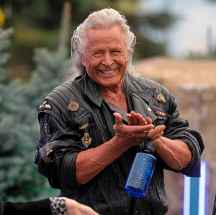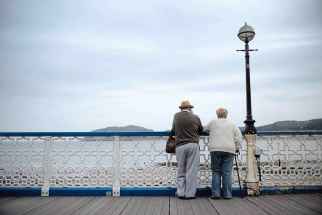PM urges patience, promises reconciliation in face of anti-pipeline blockades
Read this article for free:
or
Already have an account? Log in here »
To continue reading, please subscribe:
Monthly Digital Subscription
$0 for the first 4 weeks*
- Enjoy unlimited reading on winnipegfreepress.com
- Read the E-Edition, our digital replica newspaper
- Access News Break, our award-winning app
- Play interactive puzzles
*No charge for 4 weeks then price increases to the regular rate of $19.00 plus GST every four weeks. Offer available to new and qualified returning subscribers only. Cancel any time.
Monthly Digital Subscription
$4.75/week*
- Enjoy unlimited reading on winnipegfreepress.com
- Read the E-Edition, our digital replica newspaper
- Access News Break, our award-winning app
- Play interactive puzzles
*Billed as $19 plus GST every four weeks. Cancel any time.
To continue reading, please subscribe:
Add Free Press access to your Brandon Sun subscription for only an additional
$1 for the first 4 weeks*
*Your next subscription payment will increase by $1.00 and you will be charged $16.99 plus GST for four weeks. After four weeks, your payment will increase to $23.99 plus GST every four weeks.
Read unlimited articles for free today:
or
Already have an account? Log in here »
Hey there, time traveller!
This article was published 18/02/2020 (2121 days ago), so information in it may no longer be current.
OTTAWA – Prime Minister Justin Trudeau promised to redouble reconciliation efforts with Indigenous Peoples Tuesday as he sought to ease tensions over nationwide blockades erected in opposition to a British Columbia pipeline project.
Even as Trudeau called for patience, questions abounded over how he planned to make good on his promise. He faced demands from the Opposition Conservatives to crack down on protesters who have disrupted large parts of the country’s transportation network.
Several First Nations leaders agreed in their own news conference in Ottawa that the dispute speaks to broader — and long-standing — concerns from Indigenous communities, but they also appeared uncertain over how the current crisis can be truly resolved.
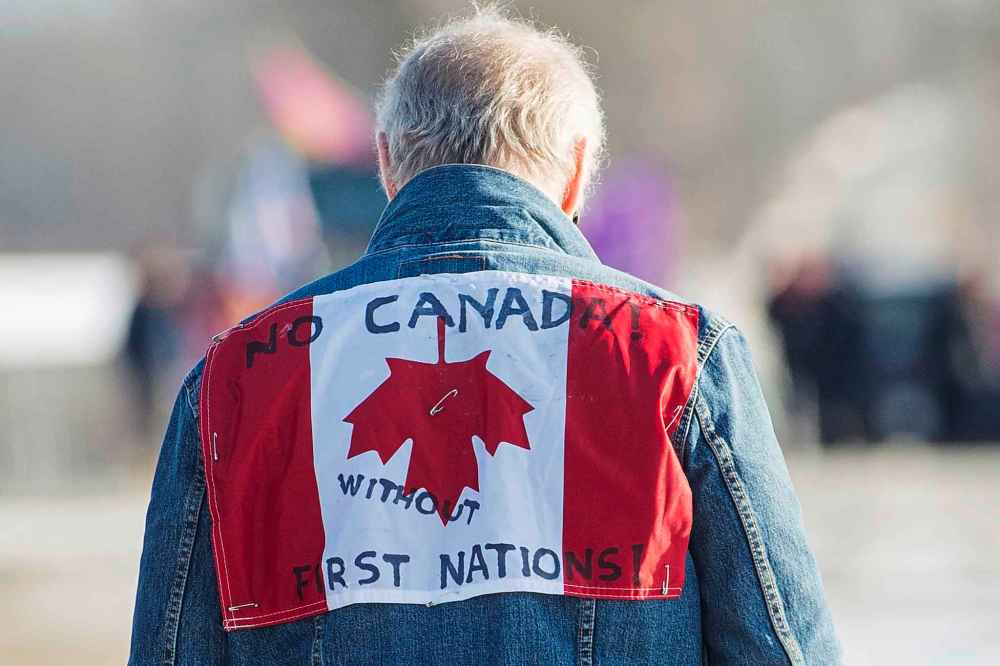
Trudeau delivered his most extensive remarks yet on the blockades and the $6.6-billion natural-gas pipeline protesters oppose in an address to the House of Commons, where MPs were preparing to hold an emergency debate on the standoff.
Recognizing the crisis as “a critical moment for our country and for our future,” the prime minister acknowledged that people on all sides are frustrated.
“What we are facing was not created overnight,” he said. “It was not created because we have embarked upon a path of reconciliation recently in our history. It is because for too long in our history, for too many years, we failed to do so. Therefore, finding a solution will not be simple.”
Trudeau acknowledged many Indigenous people feel betrayed by the federal government after decades of empty promises, as he recognized that Canadians across the country are suffering because of the blockades.
Canadian Manufacturers and Exporters CEO Dennis Darby, for instance, said the crisis is “beyond serious” and estimated some $425 million in goods is becoming stranded every day the blockade continues.
It was in this context that Trudeau called for trust and patience from all sides to resolve not only the current crisis, but to also work on reconciliation to ensure similar disputes don’t erupt.
“The opportunity is there on the table right now,” he said. “We are in this together: the worker, the senior, the Indigenous leader, the protester and the police officer. Let us have the courage to take this opportunity and take action together and so to build a better path for all Canadians.”
How Trudeau and his Liberal government might take that opportunity wasn’t apparent.
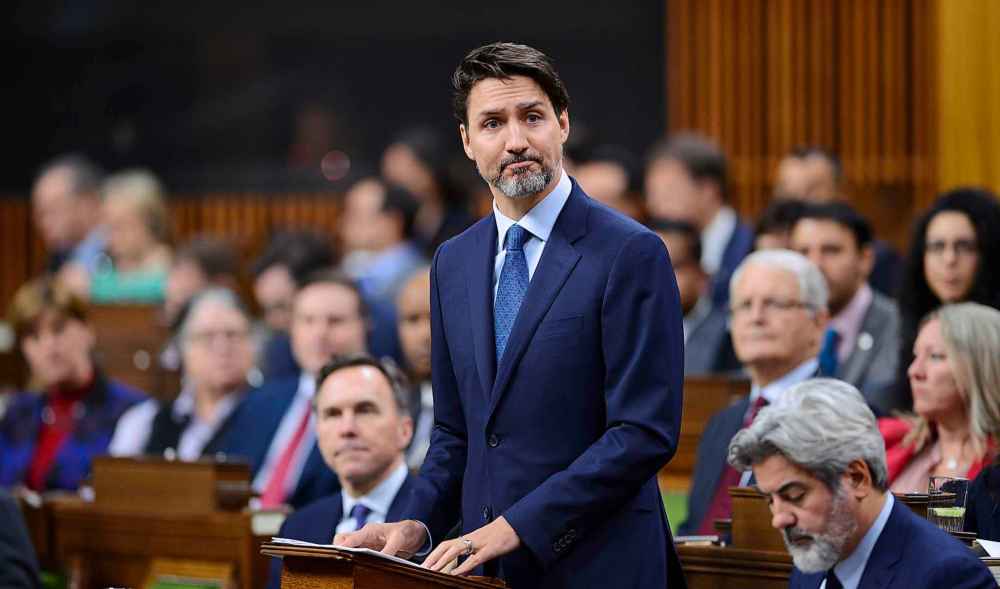
Bloc Quebecois Leader Yves-Francois Blanchet compared the prime minister’s speech to the promises Trudeau made to Indigenous people during the 2015 federal election campaign.
Trudeau noted the federal government’s offer to have Crown-Indigenous Relations Minister Carolyn Bennett meet with hereditary chiefs of the Wet’suwet’en First Nation, whose opposition to the Coastal GasLink pipeline crossing their land sparked the current crisis.
However, a hereditary chief said Tuesday afternoon they won’t meet until the RCMP leave the area where they arrested 28 people this month while enforcing an injunction.
Chief Woos, who represents one of 13 Wet’suwet’en house groups, said all hereditary chiefs agree and accuse the RCMP of being “bullies.”
The RCMP have operated a mobile detachment off a logging road outside Houston, B.C., since January 2019, after they enforced a similar injunction in the area.
While the RCMP have said their major operations in the region this month have concluded, they’ve also said the mobile unit will remain in place and continue “patrols of the corridor to ensure everyone’s safety.”
Conservative Leader Andrew Scheer pointed out that Trudeau’s address didn’t include a plan to end the blockades that have halted train service to parts of the country for more than a week and temporarily closed bridges and highways.
Describing Trudeau’s speech as “the weakest response to a national crisis in Canadian history,” Scheer blasted the protesters as “radical activists” and demanded immediate action to end the blockades, which he said were holding “our economy hostage.”
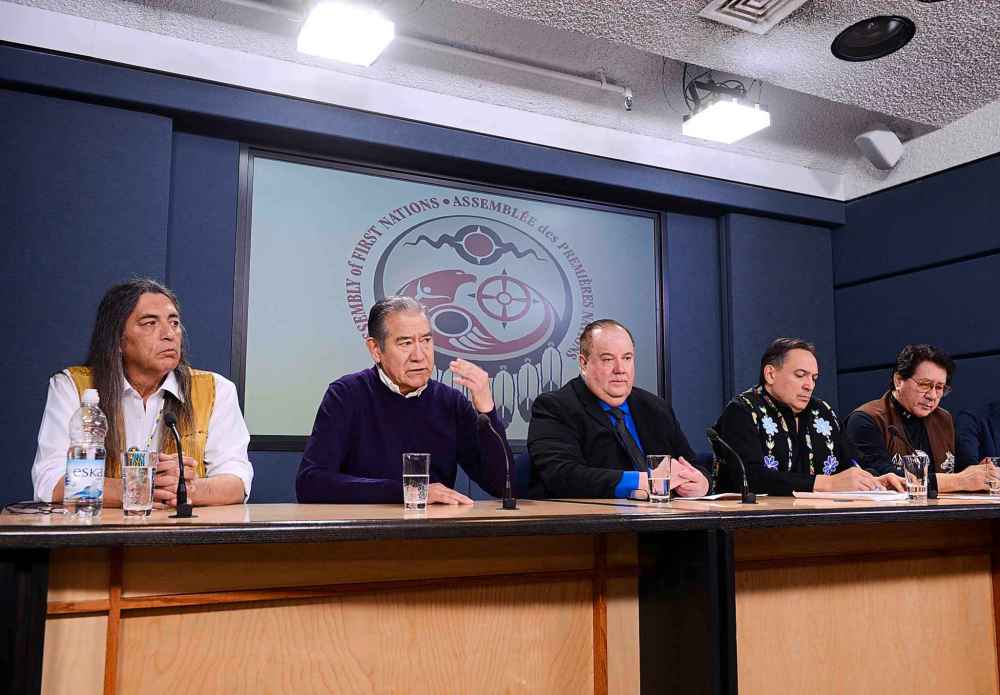
The Conservative leader suggested many of the protesters have little connection to First Nations and are opposed to all oil and gas pipelines.
“The prime minister’s elevation of these protesters to the same level as the thousands of men and women in First Nations communities across our country who have in good faith been trying to right the wrongs of Canadian history does a disservice to the spirit of reconciliation,” he said.
Saskatchewan Premier Scott Moe, who has been critical of Trudeau’s response to the blockades, tweeted he’s convened a conference call Wednesday of premiers as Chair of the Council of the Federation due to what he called “a lack of federal leadership in addressing this ongoing illegal activity.”
There was no immediate word on which premiers would be taking part.
Scheer, whom Trudeau later barred from a meeting he called with NDP Leader Jagmeet Singh, Bloc Quebecois Leader Blanchet and Green Party Leader Elizabeth May, suggested most people in the Wet’suwet’en First Nation support the project.
He pointed to TC Energy as having signed an agreement for its Coastal GasLink pipeline with 20 elected band councils, including the Wet’suwet’en band council.
During a news conference in Ottawa, leaders from Mohawk First Nations in Ontario and Quebec whose members have erected blockades in support of the Wet’suwet’en hereditary chiefs noted the councils were born out of the Indian Act, which was imposed on their people.
The fact the hereditary chiefs’ views were not heeded by TC Energy was exactly what prompted the current crisis, they added.
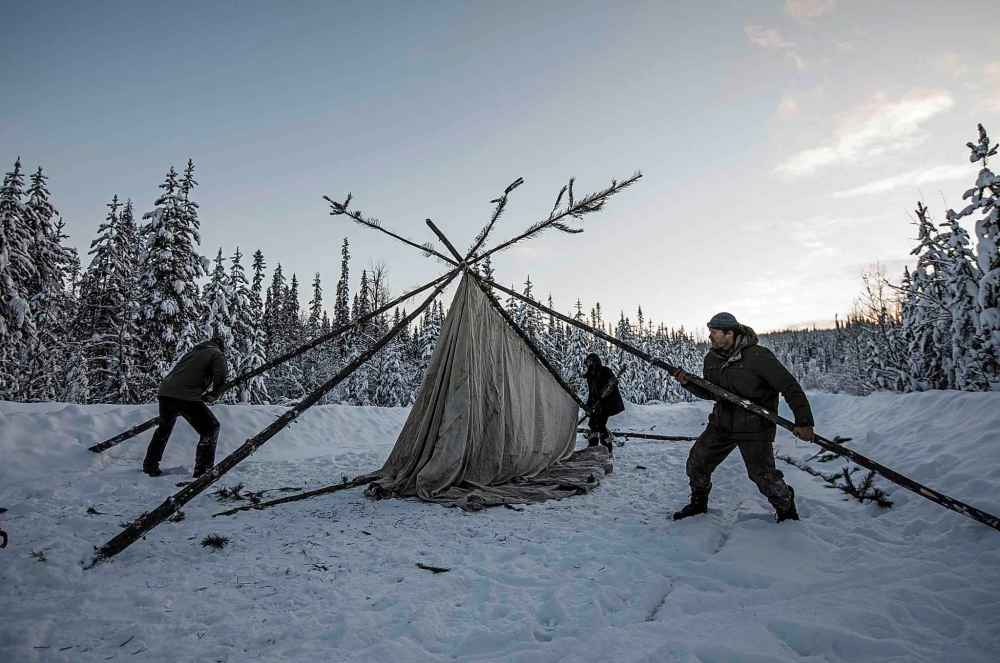
“There were people in our community that saw the injustice being done to the Wet’suwet’en nation by their traditional leaders not being heard and by being overruled by a court injunction and police intervention,” said Donald Maracle, chief of the Mohawks of the Bay of Quinte.
Members of his nation on the Tyendinaga Mohawk Territory in Ontario have set up camp next to a critical rail line, prompting CN Rail to close it to freight traffic and Via passenger trains.
“There should have been room for dialogue with those people, particularly when there was strong disagreement in the leadership. In my opinion, the project should not have proceeded in that climate,” Maracle said.
Finding a solution could be easier said than done. Maracle said it was unclear to him exactly why the Wet’suwet’en hereditary chiefs oppose the pipeline; Assembly of First Nations National Chief Perry Bellegarde said it is incumbent on the B.C. First Nation to address its own divisions.
“The Wet’suwet’en people themselves have an obligation to sort this out,” Bellegarde said. “You see the hereditary chiefs on one side. Then you have the Wet’suwet’en people on the other side and chiefs duly elected through band referendums support the Coastal GasLink.”
Bellegarde and the Mohawk chiefs nonetheless linked the current crisis to the need for reconciliation, with Bellegarde calling for implementation of the Truth and Reconciliation Commission and the National Inquiry into Missing and Murdered Indigenous Woman and Girls recommendations.
Mohawk Council of Kanesatake Grand Chief Serge Otsi Simon, sitting alongside them, was alone in suggesting the blockades erected in solidarity with the Wet’suwet’en have had their intended impact and should be lifted, at least temporarily.
“Bringing down the blockades doesn’t mean that you surrender,” said Simon. “It doesn’t mean we’re just going to lay down and let us kick us around. But it would show compassion along with the strength.”
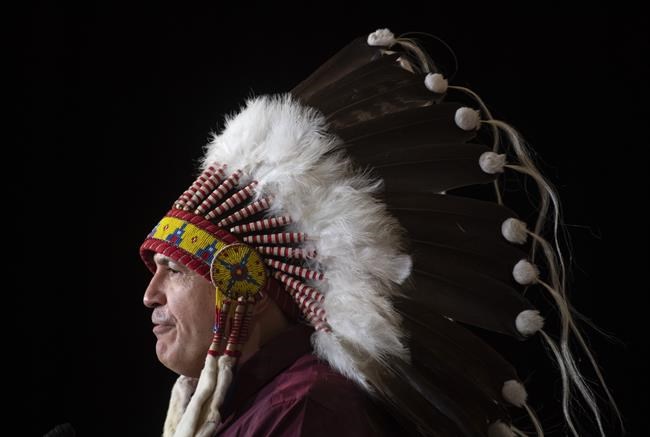
The other chiefs sidestepped questions over whether they agreed with Simon but did say work on the pipeline should be suspended.
At the blockade, protesters greeted people who approached the tracks but declined to be interviewed.
This report by The Canadian Press was first published Feb. 18, 2020.
—With files from Ian Bickis in Toronto, Laura Osman at Tyendinaga Mohawk Territory and Amy Smart in Vancouver.












